1. Leaving Trash Behind
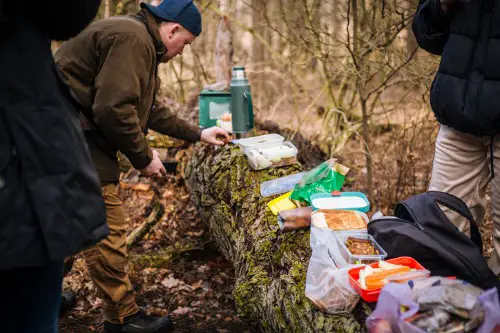
One of the fastest ways to frustrate a campground host is by leaving garbage scattered around the site. It’s not just unsightly—it attracts wildlife that can become a real safety problem. Hosts often spend extra time cleaning up what campers should have packed out themselves. What seems like a small oversight can turn into a big headache for the people responsible for keeping the campground safe and clean.
Trash bins and dumpsters are provided for a reason, and many campgrounds even have rules about separating recyclables. When visitors ignore those rules, it increases the workload for hosts and maintenance staff. Worse, leftover food scraps can encourage raccoons, bears, or rodents to frequent campsites. That creates long-term problems for both campers and hosts, well beyond one messy evening.
2. Ignoring Quiet Hours

Campgrounds almost always have designated quiet hours, usually from around 10 p.m. to 6 a.m. These rules are meant to make sure everyone can rest, not just night owls or party groups. When campers ignore them, hosts are often the ones called in to play referee. That can lead to uncomfortable situations late at night that could have been avoided.
Loud music, shouting, or even running generators during quiet hours disrupts the sense of peace that most campers come for. Hosts end up fielding complaints from neighbors who feel too awkward to confront rule-breakers themselves. This puts the host in the middle of unnecessary conflict. Respecting quiet hours is one of the simplest ways to show courtesy at a shared campground.
3. Bringing Extra Vehicles Without Permission
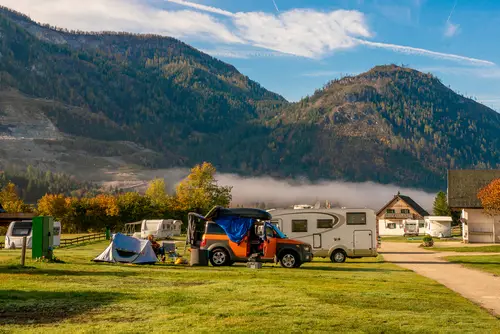
Most campsites are designed for one or two vehicles, and that’s spelled out in the reservation details. When visitors bring extra cars, trailers, or even boats without checking in first, it can cause overcrowding. Hosts then have to step in to figure out where those vehicles can safely park, or if they need to be moved altogether. This can clog access roads and even create safety hazards for emergency vehicles.
It’s not just about convenience—it’s about logistics and safety. Campgrounds have limited space, and too many vehicles can damage grassy areas or block driveways. Hosts often get the blame when neighbors feel crowded or inconvenienced. A simple call ahead to ask about extra parking can prevent a lot of unnecessary stress.
4. Cutting Through Other Campsites

It might seem harmless to take a shortcut across someone else’s campsite, but to hosts, it’s a top complaint. Every site is rented out as private space, and walking through it is considered poor etiquette. When campers do it, it often leads to disputes that the host then has to mediate. Nobody likes playing peacemaker over what boils down to a respect issue.
Hosts also know that cutting through campsites can damage the natural environment. Repeated foot traffic tramples vegetation and creates unofficial trails that can take years to heal. Once one person does it, others often follow, turning a small shortcut into a permanent scar. Sticking to marked paths is better for campers, hosts, and the land itself.
5. Ignoring Pet Rules

Pets are welcome at many campgrounds, but they come with rules for good reason. Leaving dogs off-leash or not cleaning up after them creates immediate problems. Hosts often have to respond to noise complaints, dog fights, or unsanitary conditions. What could have been avoided with a leash or a bag quickly becomes a source of stress for everyone.
Wildlife interactions are another big concern. Dogs allowed to roam freely may chase deer, squirrels, or even approach bears. That endangers both the pet and the local ecosystem. Hosts know from experience that one loose dog can cause a cascade of problems, which is why they take pet rules so seriously.
6. Dumping Gray Water Improperly
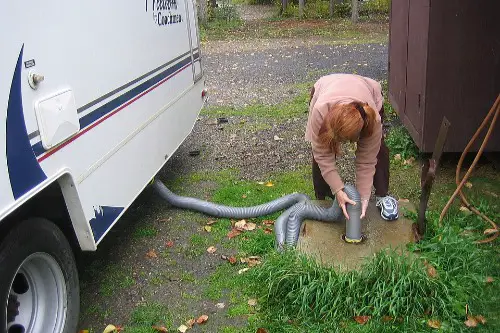
Some campers think pouring dishwater or shower runoff on the ground is harmless. In reality, gray water often contains food scraps, soap, and grease that can damage soil and attract pests. Hosts frequently find themselves scrubbing up after someone’s improvised “drain system.” It’s unsanitary and creates unnecessary work.
Campgrounds typically provide designated dump stations or sinks for a reason. Using them helps protect both the environment and future campers. Hosts get frustrated because improper dumping is both lazy and harmful. A little extra effort goes a long way in keeping campgrounds safe and welcoming.
7. Feeding Wildlife
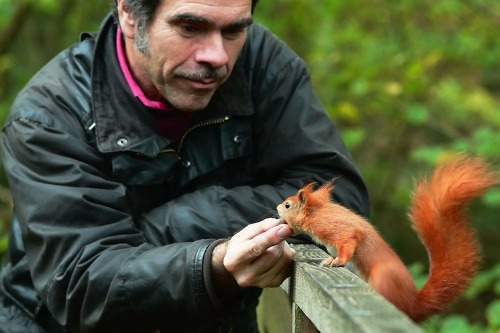
Leaving out food for squirrels, birds, or deer might seem kind-hearted, but it’s a major problem for hosts. Animals that get used to human food lose their natural instincts and become aggressive. Hosts then have to deal with “nuisance animals” that raid campsites or beg for food. This often results in costly management efforts or even the removal of animals.
Beyond safety concerns, feeding wildlife damages the natural balance of the campground. Hosts know that animals conditioned to expect handouts will linger in campgrounds long after the season ends. That puts stress on the local ecosystem. Following the “don’t feed wildlife” rule helps protect both nature and the camping experience.
8. Burning Prohibited Materials in Campfires

Campgrounds usually provide clear rules on what can be burned, but some campers toss in plastics, cans, or treated wood anyway. Hosts then have to deal with toxic smoke, foul odors, and messy fire pits. Cleaning up melted trash is not anyone’s idea of a good day. Worse, burning certain materials can release harmful chemicals into the air.
Fire pits are meant for clean wood only, and sometimes even that is restricted during high fire danger. When campers ignore those rules, they put the entire campground at risk. Hosts often find themselves extinguishing unsafe fires or issuing warnings. It’s a situation that could easily be avoided with a little common sense.
9. Disrespecting Shared Facilities
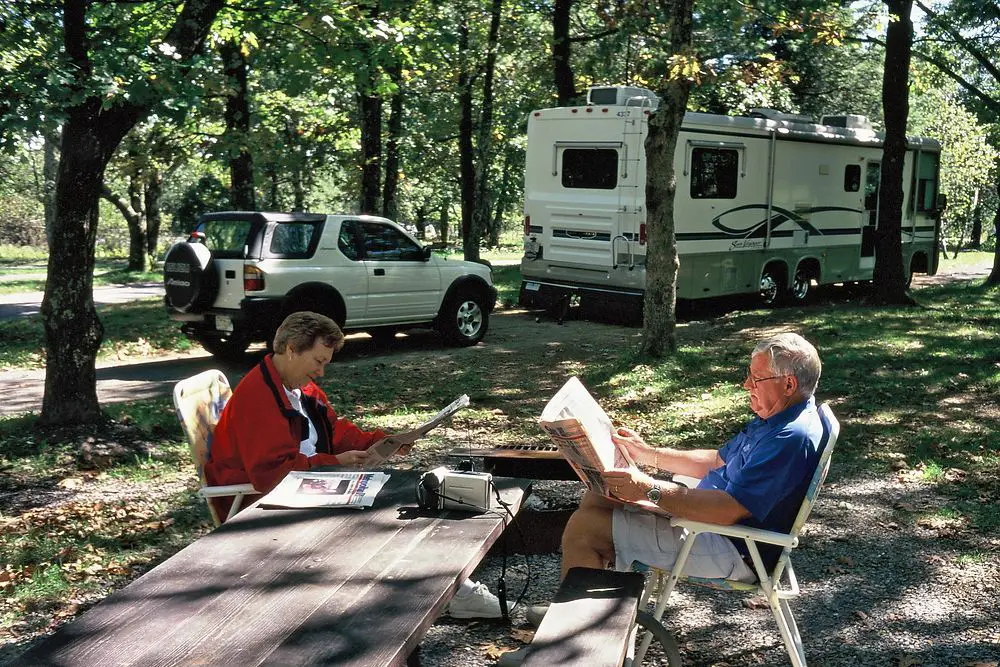
Bathrooms, showers, and dishwashing stations are shared by everyone in the campground. Leaving them messy, flooded, or covered in trash is a constant complaint among hosts. It only takes a few careless campers to make these spaces unpleasant for everyone else. Then hosts are forced to clean up extra messes outside of their normal duties.
These facilities are critical for maintaining hygiene and comfort in a communal setting. When people abuse them, it quickly lowers the overall experience for the campground. Hosts see this not as a minor annoyance but as a breakdown of respect for shared space. Keeping them tidy is a basic courtesy that makes a big difference.
10. Not Supervising Children
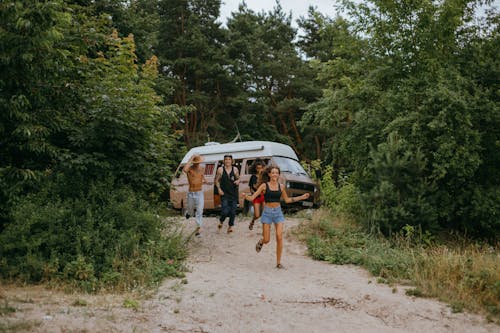
Kids can have a great time camping, but without supervision, things can spiral quickly. Hosts often field complaints about children running through campsites, damaging vegetation, or making excessive noise. Safety is another concern—unsupervised kids can wander near water, roads, or fire pits. Hosts know from experience how fast accidents can happen in these settings.
Most hosts love seeing families enjoy the outdoors, but they also see the risks firsthand. When kids are left to roam freely, it creates stress for both staff and neighbors. Simple guidelines, like keeping children within sight or teaching them campground rules, make all the difference. Hosts are there to manage the grounds, not babysit.
11. Arriving Late Without Notice
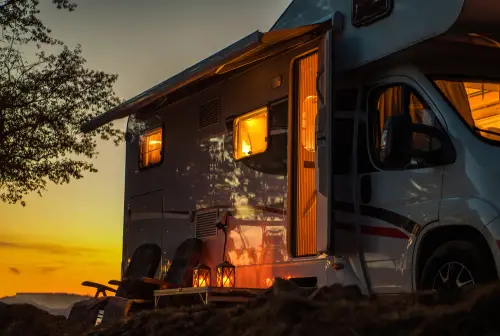
Late arrivals happen, but when campers show up well past check-in without calling ahead, it creates real problems. Hosts often have to stay up late to guide people in or deal with headlights and noise disturbing other campers. It also throws off schedules for staff who may have planned around normal check-in times. What feels like a small delay can ripple across the whole campground.
Late-night arrivals can also increase safety risks. Maneuvering large RVs or trailers in the dark can damage property or cause accidents. Hosts prefer a simple heads-up call so they can make arrangements. Communication goes a long way in keeping things smooth for everyone.
12. Ignoring Fire Safety Rules

Every campground has fire restrictions based on local conditions, and hosts take them very seriously. When campers ignore bans or leave fires unattended, they create a direct safety hazard. Hosts often have to patrol sites to make sure flames are fully out. In dry conditions, one careless ember can trigger a wildfire.
It’s not just about preventing big disasters—smaller fire mishaps cause plenty of headaches too. Overloaded fire pits can spark grass fires, and tall flames may endanger nearby trees. Hosts end up spending valuable time addressing preventable risks. Following fire rules is one of the most important ways to respect the land and the people who care for it.
This post 12 Travel Habits That Drive Campground Hosts Crazy was first published on Greenhouse Black.
